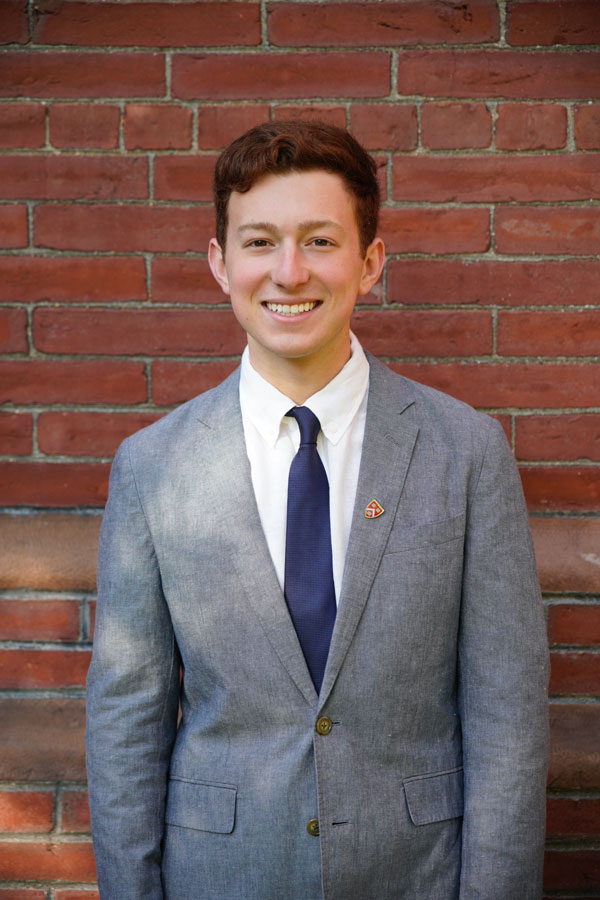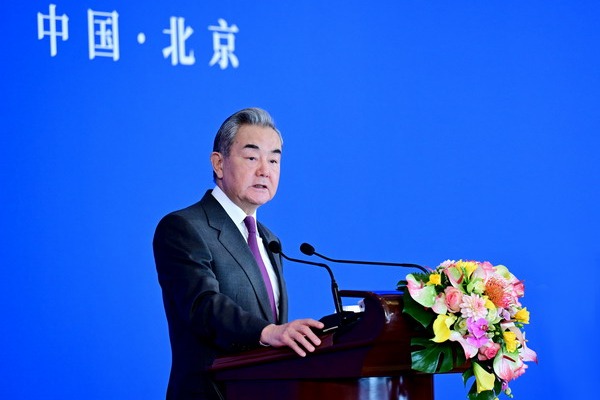Drawing hope from Wuhan's success


The need for close communication, collaboration and coordination between the world's nations is more important than ever, said Max Horne from the United States, who considers China his second home.
"Continued creation of open, accessible information regarding the epidemic worldwide is paramount, as is keeping the public well-informed," he told the Vision China event, while speaking online from New York.
Horne, a first-year Harvard College student studying East Asian languages and civilizations, had to leave campus and has been studying online from home due to the novel coronavirus pneumonia pandemic.
He said while efforts of front-line medical workers in New York are showing results, better days for the city at the epicenter of the US outbreak remain far-off.
Seeing Wuhan's lockdown end and daily life return to normal gives Horne hope."The restoration of vibrancy and vitality in China gives us optimism," he said.
"My city is sick, but my love for it is unchanged; my second home was sick, but my affinity for it remained."
Shortly after Wuhan was hit hard by the outbreak, he filmed several videos showing his support for those fighting on the front lines against the virus. He also hopes to show through his videos a down-to-earth picture of Harvard and the keen interest in China that many in US academia continue to have.
He said the Harvard Association of US-China Relations, of which he is a member, has also begun to create Jiayou Wuhan (Stay strong, Wuhan) videos.
"Filming short, lighthearted videos is dwarfed in comparison to the work of medical professionals," he said.
"But I wanted to show, at a time of growing tension in US-China relations, that countless members of the US public wish to deepen engagement with China through people-to-people exchanges and an eye to globalism."
Since beginning his Chinese studies in middle school, Horne has made numerous trips to China, forming close relationships and gaining a more nuanced understanding of the complexities of modern China.
Through a student exchange program to Suzhou, Jiangsu province, Horne developed a strong relationship with his homestay sister and remains in close contact with her. Having been through weeks of quarantine and emerging stronger, she has been a great support to Horne during his self-isolation.
Horne said when he gathered on Harvard's campus with other students and professors for the second semester, the virus seemed like a distant threat. But the virus respects no borders. On March 10, all classes were moved online, and two weeks later the university's president, Larry Bacow, tested positive for novel coronavirus. He has since recovered.
Horne thinks the challenge educators face is not how to continue high-quality education, but how to encourage students and professors to form the interpersonal bonds that make education meaningful. He also said Harvard has emphasized the need to treat all students, including those of Chinese descent, with respect at this difficult time.
The Harvard China Forum for this year, which promotes constructive dialogue between the two countries, has been canceled. As a member of the forum, Horne said it hopes to facilitate online dialogue to strengthen the US-China relationship.
Horne said it is currently exploring creative ways to bring together experts on the medical, financial, and social impacts of the epidemic.
"These are unprecedented times, and innovative, unorthodox channels for promoting much-needed, cross-cultural exchange is ever more important," he said."We are apart physically, but together in spirit."

































